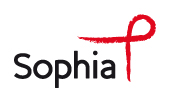Emily Hufton* and Joanna Raven† *Manchester Centre for Sexual Health, Central Manchester NHS FoundationTrust, Manchester, UK, and †Department of International Public Health, Liverpool School ofTropical Medicine, Liverpool, UK
Abstract
Little is known about the infant feeding experiences of refugees residing in the UK.To enable successful health promotion for this population,such experiences must be understood.The study aimed to gain an understanding of infant feeding practices among a group of UK-based refugee mothers. Objectives were to explore mothers’ perceptions and influences of infant feeding practices, to explore challenges faced by mothers in feeding their infants and to identify concerns and experiences of health care professionals with regard to caring for them. Fifteen semi-structured interviews and two focus group discussions with refugee mothers and five semistructured interviews with health care providers were conducted in 2012.A framework approach was used to identify main themes. Overall mothers were dissatisfied with their infant feeding outcomes. A preference to exclusively breastfeed was often not achieved. Most resorted to using formula feed, perceiving that this was primarily due to a lack of support. Mothers who were positive to human immunodeficiency virus followed the UK guidelines of exclusively formula feeding for 6 months, but struggled with guilt of not being able to breastfeed. All mothers unable to exclusively breastfeed experienced a sense of loss. Lack of wider support services coupled with complex lifestyles appeared to create challenges in providing infant feeding support.The results highlight a need for an intensified response to facilitate these mothers to maintain their preferred infant feeding choices, or when required, to support them in the adoption of a new method. Using experienced refugee mothers to guide newer mothers, and integrating health and social care, would be positive starting points.

